June is LGBTQ+ Pride Month. Take a look at these resources that help support LGBTQ+ students and educators through activism, research, policy, and curriculum.
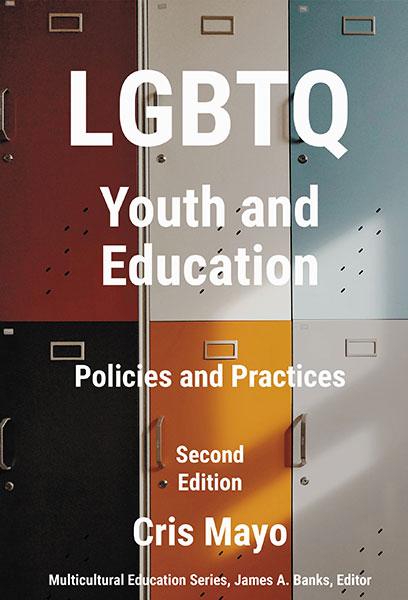
LGBTQ Youth and Education (Second Edition)
Policies and Practices
Cris Mayo
This second edition is essential reading for educators and other school community members who are navigating the increasingly complicated laws and legal rulings related to LGBTQ students, employees, and community members. It combines historical, contemporary, theoretical, and practical information to help educators address exclusionary practices in schools related to gender identity, sexuality, racism, sexism, and other forms of bias that shape student experiences. To enable educators to better understand their obligations to students in relation to policy, staff training, daily school climate, pedagogy, and curriculum, the author has extensively revised this popular text to include updated information on the impact of same-sex marriage legalization and increasing federal recognition of transgender student rights. And because the legal terrain regarding transgender youth has been especially volatile, Mayo provides strategies that educators can use to maintain ethical trans-inclusive teaching, even when local regulations appear to impede transgender inclusivity.
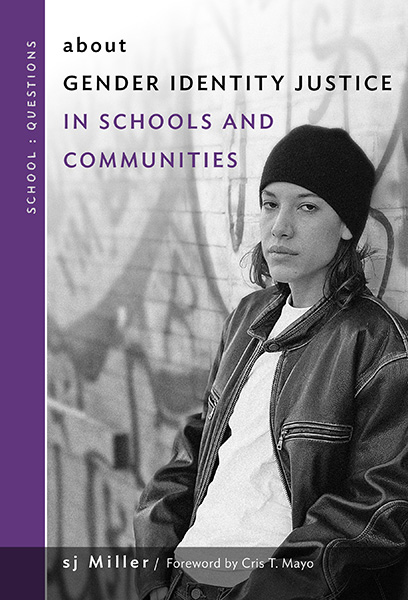
about Gender Identity Justice in Schools and Communities
sj Miller
What is gender identity justice, why does it matter, and what are the implications for not doing this work in today’s schools? This premiere book in the new Teachers College Press series School : Questions carefully walks readers through both theory and practice to equip them with the skills needed to bring gender identity justice into classrooms, schools, and ultimately society. The text looks into the root causes and ways to change the conditions that have created gender identity injustice. It opens up spaces where evolving, indeterminate gender identities will be understood and recognized as asset-based, rich sources for learning literacy and literacy learning. As educators take up the strategies mapped out across this text, they will learn how to foster school environments that aid all students in becoming agents for social change. This text is the first of its kind to address gender identity in teacher education with pathways to take up the work in communities and beyond.
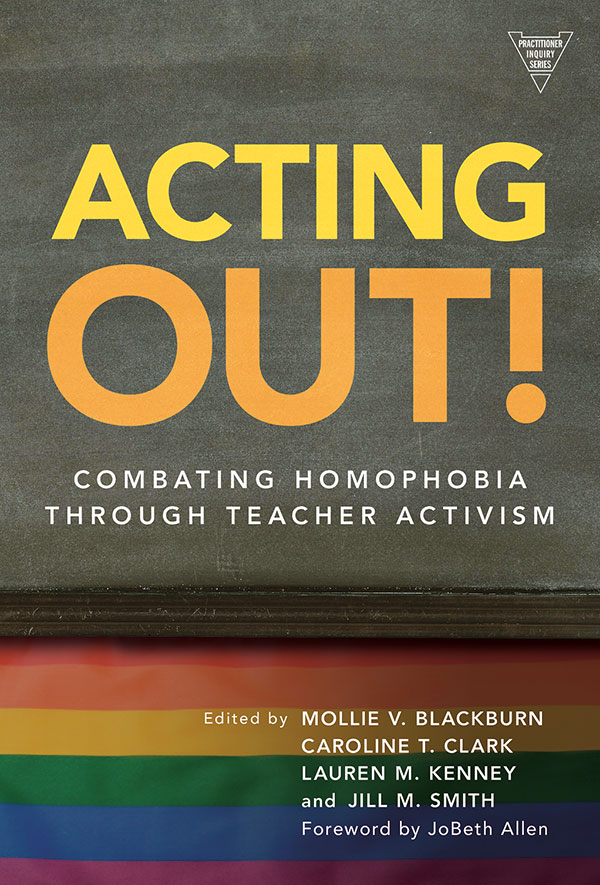
Acting Out! Combating Homophobia Through Teacher Activism
Edited By: Mollie V. Blackburn, Caroline T. Clark, Lauren M. Kenney, Jill M. Smith
In this volume, teachers from urban, suburban, and rural districts join together in a teacher-inquiry group to challenge homophobia and heterosexism in schools and classrooms. To create safe learning environments for all students they address key topics, including seizing teachable moments, organizing faculty, deciding whether to come out in the classroom, using LGBTQ-inclusive texts, running a Gay-Straight Alliance, changing district policy to protect LGBTQ teachers and students, dealing with resistant students, and preparing preservice teachers to do antihomophobia work.
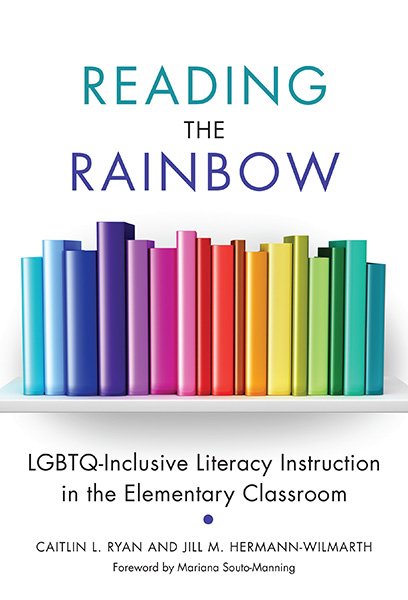
Reading the Rainbow
LGBTQ-Inclusive Literacy Instruction in the Elementary Classroom
Caitlin L. Ryan and Jill M. Hermann-Wilmarth
Winner of the 2018 LRA Edward B. Fry Book Award
Drawing on examples of teaching from elementary school classrooms, this timely book for practitioners explains why LGBTQ-inclusive literacy instruction is possible, relevant, and necessary in grades K–5.
The authors show how expanding the English language arts curriculum to include representations of LGBTQ people and themes will benefit all students, allowing them to participate in a truly inclusive classroom. The text describes three different approaches that address the limitations, pressures, and possibilities that teachers in various contexts face around these topics. The authors make clear what LGBTQ-inclusive literacy teaching can look like in practice, including what teachers might say and how students might respond.
Reading the Rainbow is designed to be interactive, providing readers with opportunities to consider these new approaches with respect to their own classrooms and traditional literacy instruction.
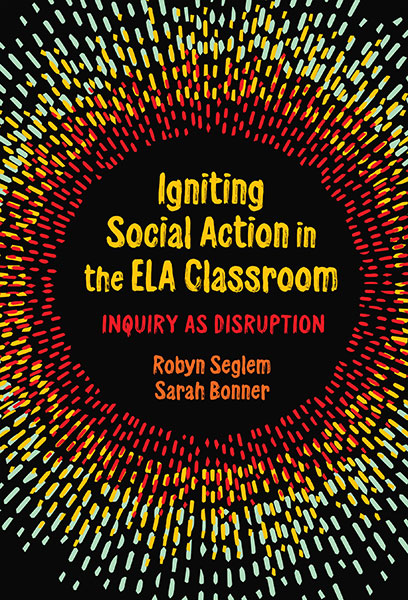
Igniting Social Action in the ELA Classroom
Inquiry as Disruption
Robyn Seglem and Sarah Bonner
This practical book provides teachers with step-by-step guidance for developing a class culture that welcomes curiosity and ignites social action. Student-driven inquiry has a lasting impact on learning, yet questions posed from students’ own contexts rarely serve to shape their understanding of the outside world. The authors show teachers how to use literature to introduce characters and worlds that exist outside of their students’ lived experiences. Through this exposure, students can develop questions that seek to build empathy for others, which ultimately positions young people to be change agents in their communities and in the larger world. This book translates ideas from theorists in critical literacy, student motivation, and culturally responsive pedagogy into practical approaches for the English language arts and social studies classroom (6–12). Each chapter poses questions designed to get teachers thinking about how to use mind-opening texts with students to address social problems.
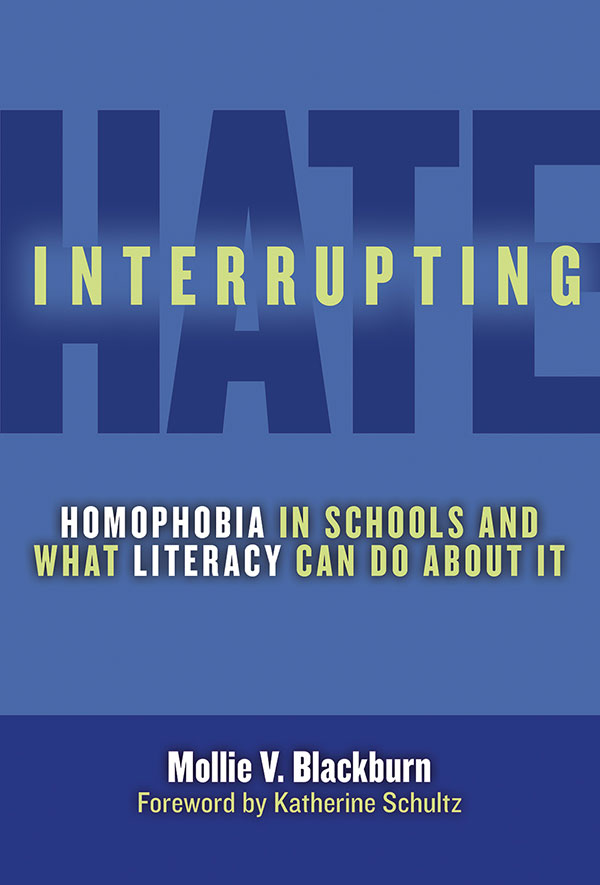
Interrupting Hate
Homophobia in Schools and What Literacy Can Do About It
Mollie V. Blackburn
This timely and important book focuses on the problems of heterosexism and homophobia in schools and explores how these forms of oppression impact LGBTQ youth, as well as all young people. The author shows how concerned teachers can engage students in literacy practices both in and out of school to develop positive learning environments. The featured vignettes focus on fostering student agency, promoting student activism, and nurturing student allies. With a unique combination of adolescent literacy and teacher action projects, this book offers a valuable model for educators interested in creating safe learning communities for all students.
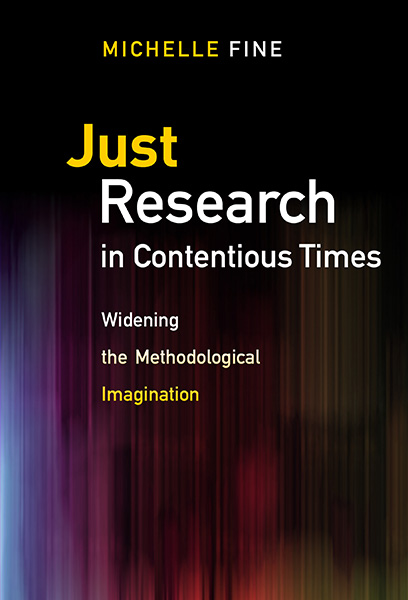
Just Research in Contentious Times
Widening the Methodological Imagination
Michelle Fine
In this intensely powerful and personal new text, Michelle Fine widens the methodological imagination for students, educators, scholars, and researchers interested in crafting research with communities. Fine shares her struggles over the course of 30 years to translate research into policy and practice that can enhance the human condition and create a more just world. Animated by the presence of W.E.B. DuBois, Gloria Anzaldúa, Maxine Greene, and Audre Lorde, the book examines a wide array of critical participatory action research (PAR) projects involving school pushouts, Muslim American youth, queer youth of color, women in prison, and children navigating under-resourced schools. Throughout, Fine assists readers as they consider sensitive decisions about epistemology, ethics, politics, and methods; critical approaches to analysis and interpretation; and participatory strategies for policy development and organizing. Just Research in Contentious Times is an invaluable guide for creating successful participatory action research projects in times of inequity and uncertainty.
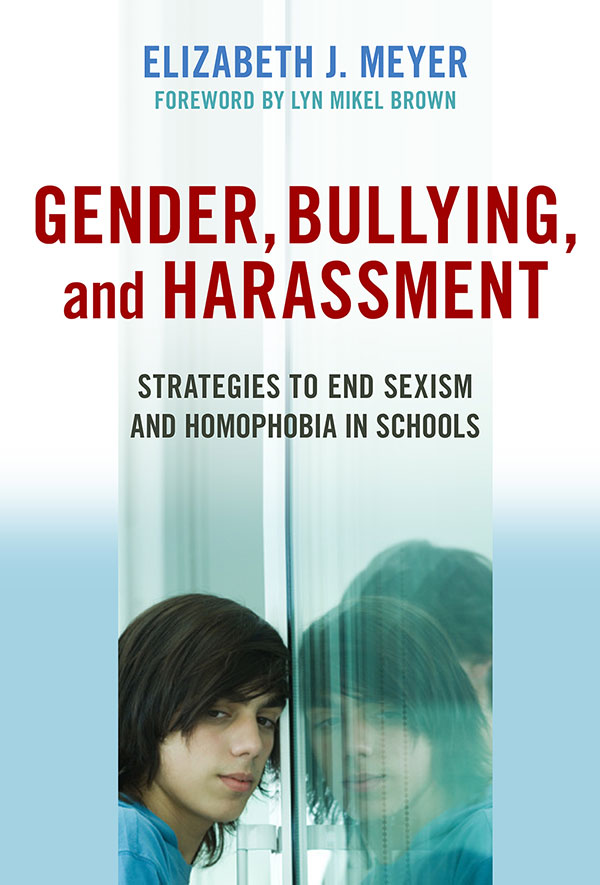
Gender, Bullying, and Harassment
Strategies to End Sexism and Homophobia in Schools
Elizabeth J. Meyer
While there have been countless studies of bullying and harassment in schools, none have examined the key gender issues related to these behaviors. In her new book, Meyer does just that and offers readers tangible and flexible suggestions to help them positively transform the culture of their school and reduce the incidences of gendered harassment. The text features sections that speak specifically to administrators, teachers, counselors, student leaders, and community and family members.
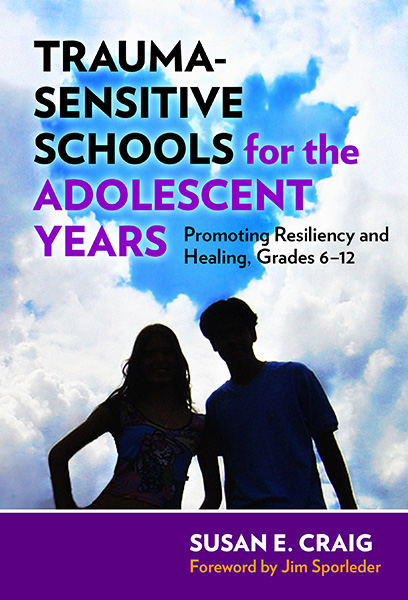
Trauma-Sensitive Schools for the Adolescent Years
Promoting Resiliency and Healing, Grades 6–12
Susan E. Craig
The trauma-sensitive schools movement is the result of a confluence of forces that are changing how educators view students’ academic and social problems, including the failure of zero tolerance policies to resolve issues of school safety, bullying, and academic failure, as well as a new understanding of adolescents’ disruptive behavior.
In this follow-up to her bestseller, Trauma-Sensitive Schools, Susan Craig provides secondary school teachers and administrators with practical ideas for how to improve students’ achievement by implementing a trauma-sensitive approach to instruction.
Photo by Anna Shvets

Comments
“Be a Buddy, Not a Bully” is a song that can help teach kids about kindness and tolerance, and help combat bullying. Over 16,000 hits have been made to this song site so far. I was a teacher for 20 years.
http://www.youtube.com/watch?v=Or7WPUtUnRo
“Positivity” is another song that could help. https://www.youtube.com/watch?v=kK7dcX_3oYI&feature=youtu.be